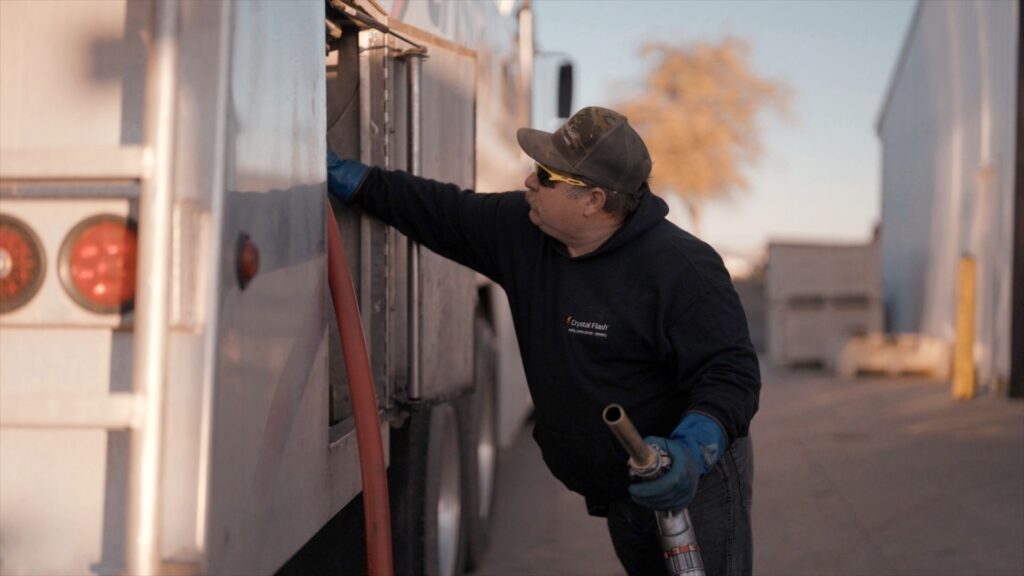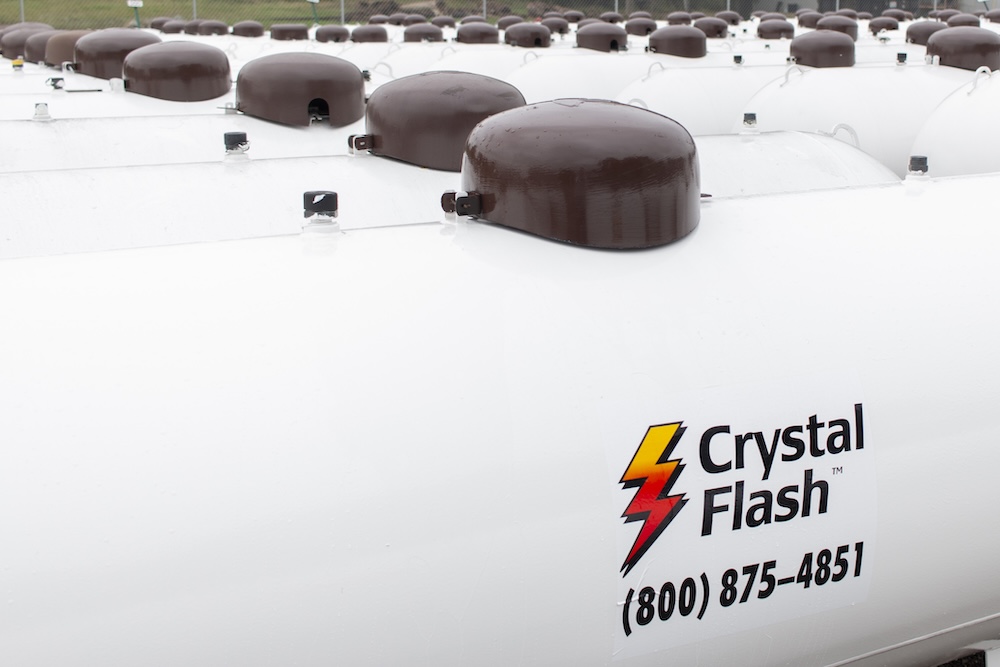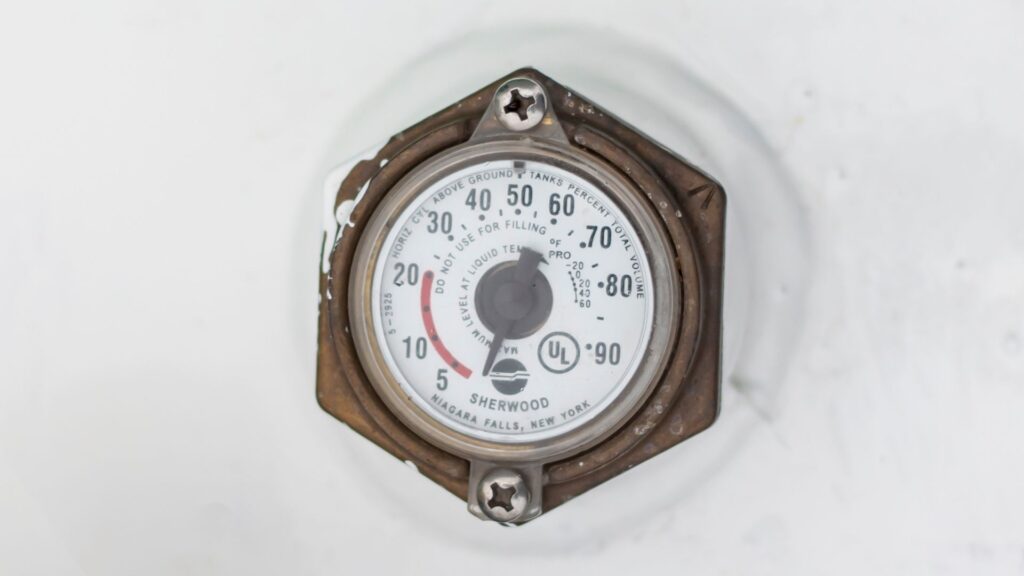Thinking about buying your own propane tank? You’re not alone. But before you make the investment, it’s important to understand the laws, responsibilities, and real-world pros and cons that come with propane tank ownership.
At Crystal Flash, we want you to have the facts—up front and easy to digest.
Do I Own My Propane Tank?
Maybe, but it’s unlikely. Over 90% of homes have a propane tank that is owned by a propane company, meaning less than 10% of homeowners own their own propane tank. And unless you have a bill of sale or proof of ownership, the tank likely won’t be considered customer-owned, even if it’s 20 years old. A reputable supplier won’t fill a tank without seeing clear proof of legal ownership since it is against the law in Michigan to fill a tank owned by another supplier.
Is It Legal to Own Your Own Propane Tank?
Yes! It is legal to own your propane tank. However, propane tank ownership is regulated for safety reasons. Regulations for installation, inspection, and filling can vary slightly by state, county, and even township, but common legal requirements include:
- Proper tank installation following local building codes
- Obtaining a permit for new tank installation
- Routine safety inspections to ensure tanks meet state and national standards
- Proof of ownership (a bill of sale) for tank filling and maintenance
It’s important to note that if you own your tank, you can choose your propane supplier. But if a tank is leased or owned by a propane company, by law, only that company can fill it. Filling someone else’s leased tank is illegal.
Should You Buy a Propane Tank?
Benefits of Owning a Propane Tank
Freedom to Choose Your Supplier
When you own your tank, you’re not locked into a single provider. You can shop around for the best propane prices each time you refill.
Potential Price Savings
Since propane suppliers don’t need to supply or maintain a customer-owned tank, some may offer a discount per gallon.
Full Control Over Your Tank
You can paint, customize, and position your tank (following safety regulations) as you see fit.
Responsibilities of Owning a Tank
Maintenance and Repairs
Tank owners are responsible for all system upkeep: regulators, valves, piping, and periodic safety checks. Repairs for leaks or storm damage also fall on you.
Upfront Costs
Purchasing a tank and installing it (especially underground) can cost anywhere from $1,500 to over $12,000, depending on size, type, and installation needs.
Limited Tank Availability
With supply chain issues, new tanks can have long lead times. Used tanks are an option but they must pass inspection and certification standards.
Permits and Documentation
You’ll need to secure a permit for installation, which Crystal Flash can help with. You’ll also need an official bill of sale for proof of ownership, which you need to provide when selling your home or switching providers.
Should I Lease a Propane Tank Instead?
When you use a propane tank owned by your propane company, many of the considerations listed above become simplified, and in some cases, safer.
No Upfront Tank Cost
When you lease a tank from Crystal Flash, you don’t have to worry about the high initial investment that comes with purchasing one. This makes it easier to start or continue using propane without a big hit to your budget.
No Maintenance Responsibilities
Leased tanks are fully maintained by the propane company, so you don’t have to schedule system checks or pay for repairs out of pocket. If something breaks, your supplier takes care of it.
Fewer Safety Concerns
With a company-owned tank, safety is built into the relationship. Your propane company should proactively replace worn parts, monitor for issues, and make sure your system meets all required safety standards.
Easier Permits and Inspections
Installing a new tank usually requires permits and safety inspections, which can be time-consuming. Your propane supplier can take care of those steps for you—saving you time and ensuring everything is up to code.
Filling Limitations
With a leased tank, only the tank owner (the propane company) can fill it. But you may find the convenience and peace of mind is worth the limitation. Be sure to ask about annual usage minimums with any provider you’re considering. At Crystal Flash, we do not charge tank-set or lease fees for actively used tanks.
What About Tank Rental?
Some propane companies now offer tank rental as a third option. With a rental agreement, you pay an annual or monthly fee to use the company’s tank—regardless of how much propane you use. This setup can be convenient, especially for homeowners who use propane seasonally or in smaller amounts.
However, rental fees can vary widely, and they’re often charged even if your propane usage is high. That means the more you use your tank, the less cost-effective this model may be compared to leasing or ownership.
When evaluating propane providers, always ask about extra fees—including rent, minimum usage charges, or delivery fees—so you’re not surprised later.
So Which One is Right for You?
Here’s a quick comparison of propane tank ownership and leasing, to help you decide which option might fit your needs best.
| Feature | Tank Ownership | Tank Lease (Crystal Flash-owned tank) |
| Upfront Cost | High – $1,500–$12,000+ | None |
| Maintenance Responsibility | Owner | Crystal Flash |
| Propane Supplier | You choose | Crystal Flash |
| Permit & Installation Handling | Owner must arrange | Crystal Flash facilitates |
| Ongoing Fees | None (after purchase) | None (for active users) |
Still Have Questions About Propane Tank Ownership?
We’re happy to help!
Fill out a quick form or give us a call at 855.774.9318 to talk through your options, including ownership and leasing a propane tank.

Refer a Friend
Know someone in need of affordable propane and reliable delivery? Send them our way, and when they sign up with Crystal Flash, you'll get a reward!
Get Started Today
Propane delivery to your home from Michigan's go-to provider.
Our new customer bundle combines our no-hassle Auto-Fill Delivery program with a FREE Crystal Flash Tank Monitoring System.
Subscribe To Our Newsletter
We’ll send you occasional updates about our business and industry. You’ll hear from us about once a month.




